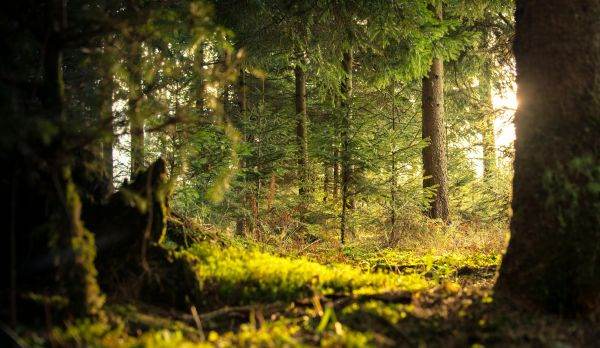Unprecedented wildfires and accelerating global temperatures threaten to undo decades of progress in protecting and restoring forests in the Northern Hemisphere, according to a new report by the United Nations Economic Commission for Europe (UNECE), published and cited by Reuters. The document warns that forests in Europe, North America, the Caucasus and Central Asia are gradually losing their capacity to absorb carbon dioxide, transforming from a climate shield into a potential factor accelerating global warming.
Traditionally, forests in the Northern Hemisphere have functioned as one of the Earth's most important natural carbon sinks, absorbing a significant share of emissions from the burning of fossil fuels. But current trends indicate an alarming deterioration of this balance, and experts warn that a "tipping point” could be reached, at which point forests would start releasing more carbon dioxide than they can store. "The message is clear: the achievements of the past three decades are being seriously jeopardized by the climate emergency,” said Tatiana Molcean, UNECE Executive Secretary. Forests in the Northern Hemisphere hold about half of the global carbon dioxide storage, making them a key element of global climate stability.
• Record fires and devastating droughts
The UNECE report highlights that boreal and Arctic forests, which contain almost half of the world's primary forests, are on the front lines of the climate crisis. Rising average temperatures, heat waves, persistent droughts and increasingly frequent wildfires have dramatically reduced the capacity of forests to function as "carbon sinks.” A study cited by the UN shows that European forests absorbed almost a third less carbon dioxide between 2020 and 2022 than between 2010 and 2014. "We cannot afford to lose the planet's strongest natural defense,” warns Molcean. "Increasing fire frequency and droughts are pushing forests past the breaking point.”
• A fragile ecosystem under pressure
The Northern Hemisphere is home to 42% of the world's forests and almost half of its primary forests - ecosystems untouched by humans that act as natural reservoirs of biodiversity and carbon. But these forests are increasingly facing attacks from pests, forest diseases, illegal logging and excessive industrial exploitation. In many areas of Scandinavia, Siberia and North America, fires in recent years have released huge amounts of carbon dioxide into the atmosphere, almost completely canceling out the benefits of previous reforestation. In an attempt to reverse this trend, Brazil - the host of the COP30 climate summit - will launch the Tropical Forests Forever Fund (TFFF), an international fund designed to support countries that commit to protecting and regenerating tropical forests. The initiative could also be a model for the boreal regions, where sustainable forest management is becoming a geopolitical priority. Financing reforestation, limiting logging and satellite monitoring of fires are among the measures proposed at the international level.
Experts warn that the window of time to save the forests of the northern hemisphere is rapidly narrowing. If the current pace of deforestation and fires continues, the planet risks losing one of its most important natural allies in the fight against climate change. "Without these forests, achieving the Paris Agreement goal of limiting global warming to 1.5°C becomes virtually impossible,” the UNECE report says.
Key data from the UN report (UNECE, 2025): Forests in the Northern Hemisphere hold 50% of the global carbon stock; Their carbon dioxide absorption capacity has decreased by 30% in the last decade; Europe, North America, the Caucasus and Central Asia are the most affected regions; Fires and droughts are the main causes of forest carbon losses.
The UN report is a wake-up call for world leaders, but also a call to action for governments in the Northern Hemisphere. Forest conservation is no longer just an ecological issue, but one of global climate security.
















































